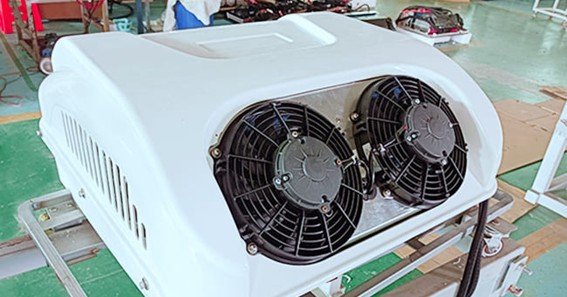In the realm of electrical systems, 12 Volt AC (Alternating Current) plays a pivotal role, especially in low-voltage applications. While DC (Direct Current) is prevalent in battery-powered devices, AC power, including the 12V variant, is essential for various applications due to its unique properties. This article delves into the specifics of 12 Volt AC, its applications, advantages, and how it stands in comparison to its DC counterpart.
What is 12 Volt AC?
12 Volt AC refers to an electrical system where the voltage alternates in polarity, completing a full cycle 50 or 60 times per second (50/60 Hz), depending on regional standards. Unlike DC, where the current flows in a single direction, AC’s alternating nature allows for efficient transmission over distances and is commonly used in household and industrial power supplies.
Common Applications of 12 Volt AC
12V AC systems are utilized in various settings due to their safety and efficiency:
- Low-Voltage Lighting: Many landscape and track lighting systems operate on 12V AC, offering safer installation and operation, especially in outdoor environments.
- Audio Equipment: Certain audio devices and guitar pedals are designed to run on 12V AC, providing the necessary power for optimal performance.
- HVAC Controls: Heating, Ventilation, and Air Conditioning systems often use 12V AC for thermostat controls and actuators.
- Doorbells and Intercoms: Traditional doorbell systems frequently operate on 12V AC, ensuring safe interaction for users.
- Model Railroads: Hobbyists use 12V AC to power model train systems, allowing for realistic operation and control.
Advantages of Using 12 Volt AC
Opting for 12V AC systems offers several benefits:
- Safety: Lower voltage reduces the risk of severe electric shocks, making it suitable for residential and outdoor applications.
- Efficiency in Transmission: AC power can be transmitted over longer distances with minimal loss, which is advantageous in certain setups.
- Compatibility with Transformers: AC systems can easily adjust voltage levels using transformers, providing flexibility in various applications.
12 Volt AC vs. 12 Volt DC: A Comparison
While both 12V AC and DC systems have their places, they differ in several aspects:
- Current Flow: AC alternates direction, whereas DC flows in a single direction.
- Applications: DC is commonly used in battery-powered devices, while AC is prevalent in household and industrial power supplies.
- Conversion: Devices like inverters and rectifiers are required to convert between AC and DC, depending on the application’s needs.
Safety Considerations
When working with 12V AC systems, it’s essential to consider:
- Proper Insulation: Even at lower voltages, ensure all wiring is adequately insulated to prevent short circuits.
- Correct Components: Use components rated for AC operation to ensure compatibility and safety.
- Regular Maintenance: Periodically inspect systems for wear and tear to maintain optimal performance and safety.
Conclusion
12 Volt AC systems offer a blend of safety and efficiency, making them suitable for various applications ranging from lighting to HVAC controls. Understanding their advantages and differences compared to DC systems allows for informed decisions in both residential and industrial settings.
FAQ
Q1: Can I use a 12V DC power supply for a device that requires 12V AC?
A: No, devices designed for 12V AC require an alternating current. Using DC power can damage the device or result in malfunction.
Q2: What happens if I connect a 12V AC device to a higher voltage?
A: Supplying a higher voltage than specified can damage the device, cause overheating, or pose safety hazards. Always adhere to the manufacturer’s voltage recommendations.
Q3: Are 12V AC systems more efficient than DC systems?
A: Efficiency depends on the application. AC systems are efficient for transmitting power over distances, while DC systems are efficient for battery-powered devices.
Q4: Can I convert 12V AC to 12V DC?
A: Yes, using a rectifier circuit or a power supply adapter designed for this purpose can convert 12V AC to DC.
Q5: Is 12V AC safe to use outdoors?
A: Yes, 12V AC is commonly used in outdoor lighting due to its lower risk of electric shock. However, ensure all components are weatherproof and properly installed.










